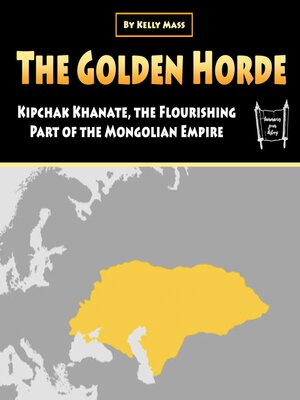The Golden Horde
audiobook (Unabridged) ∣ Kipchak Khanate, the Flourishing Part of the Mongolian Empire
By Kelly Mass

Sign up to save your library
With an OverDrive account, you can save your favorite libraries for at-a-glance information about availability. Find out more about OverDrive accounts.
Find this title in Libby, the library reading app by OverDrive.



Search for a digital library with this title
Title found at these libraries:
| Library Name | Distance |
|---|---|
| Loading... |
This audiobook is narrated by a digital voice.
Originating as a segment of the vast Mongol Empire, the Golden Horde, initially Mongol and later Turkicized, emerged in the 13th century. It proudly referred to itself as Ulug Ulus, denoting the 'Great State' in Turkic parlance. Following the fracturing of the Mongol Empire around 1259, the Golden Horde evolved into a distinct khanate. Another appellation for this entity is the Ulus of Jochi, synonymous with the Kipchak Khanate.
Following the demise of Batu Khan, the helm of the Golden Horde, in 1255, his lineage flourished for a century, until the intrigues of Nogai ignited internal strife in the late 1290s, leading to a partial civil conflict. Under the reign of Uzbeg Khan (1312–1341), who embraced Islam, the military prowess of the Horde reached its zenith. The territorial expanse of the Golden Horde at its pinnacle encompassed Siberia, Central Asia, and Eastern Europe, spanning from the Urals to the Danube in the west and from the Black Sea to the Caspian Sea in the south. It bordered the Caucasus Mountains and the domains of the Ilkhanate.







